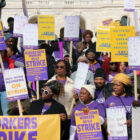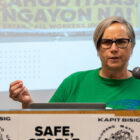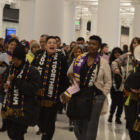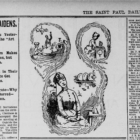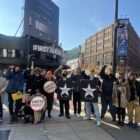Workers
Iron Range Childcare Worker on Organizing for Better Care for Children
|
The mines of the Mesabi Iron Range gleam red under the light covering of snow that remains after a historically warm winter in northern Minnesota. Hibbing, a mining town of around 16 thousand people, bustles with industry. And in any town with working people, you’ll find the working people who make all other industries possible: the childcare workers.
Iron Range Tykes, a small childcare center in Mountain Iron, Minn., sits on a small hill just off Minnesota State Highway 33. There’s a fenced-in playground and a full parking lot. Amanda Maass, 34, a long-time childcare worker, has worked there for the past three years.



